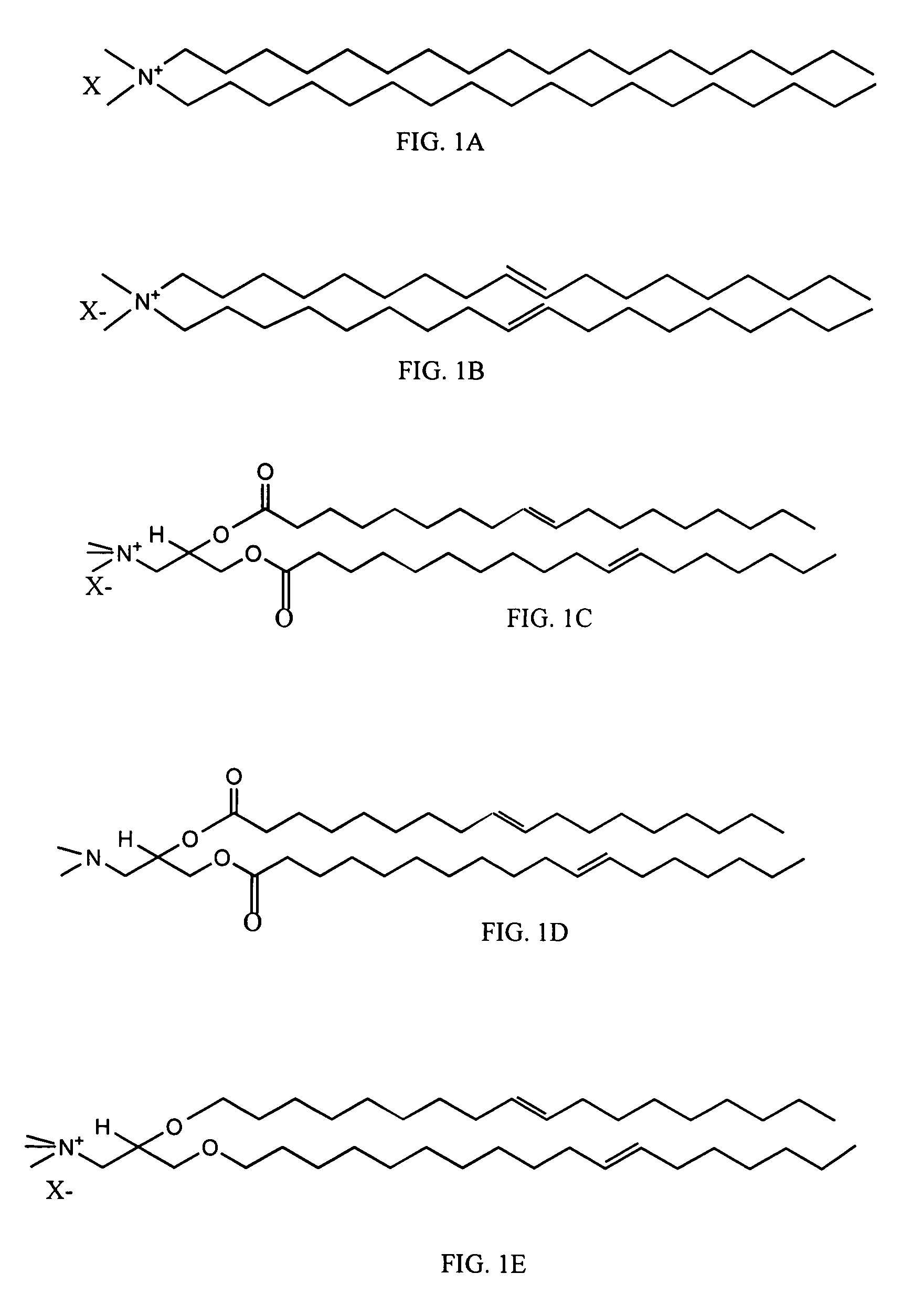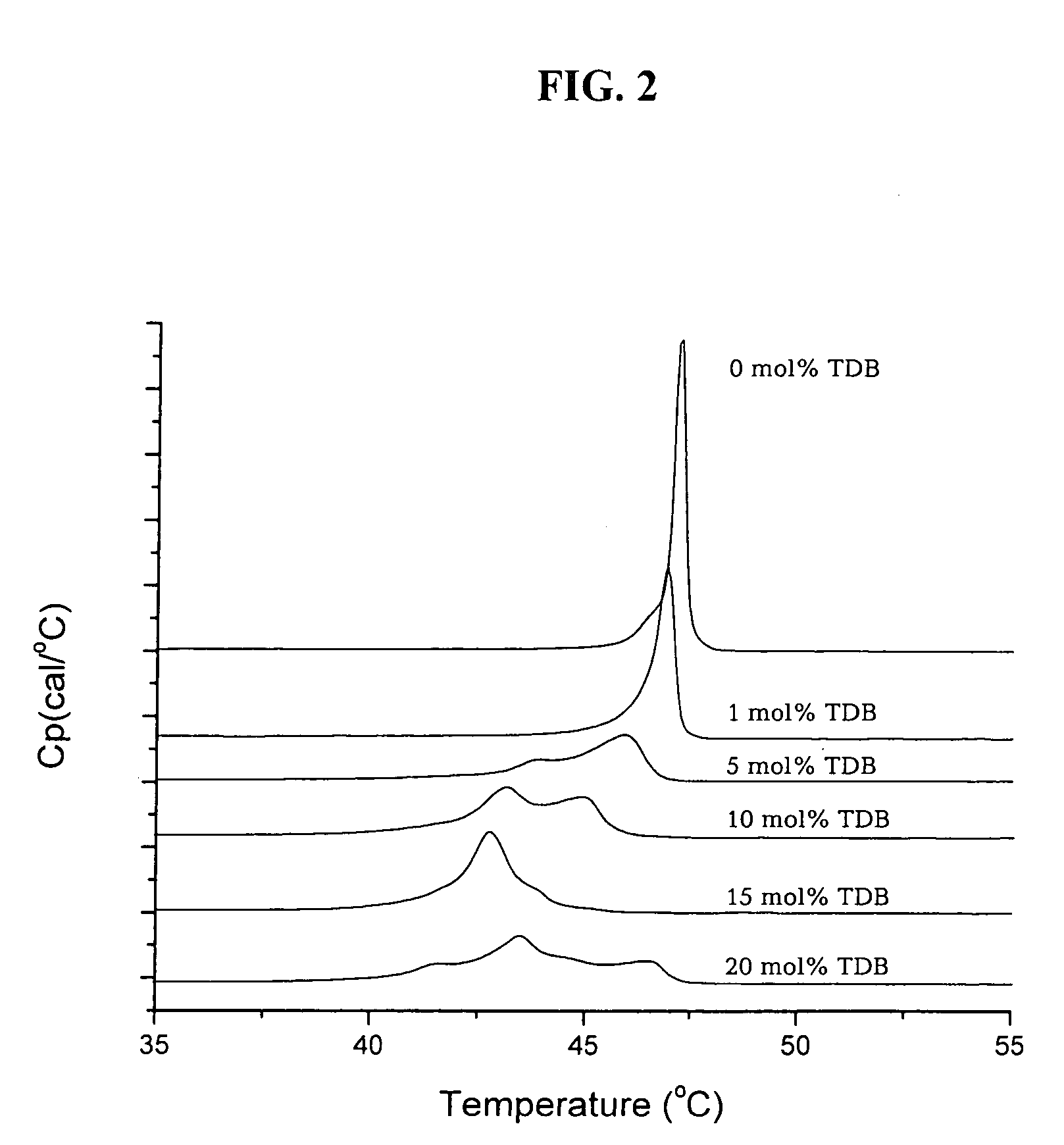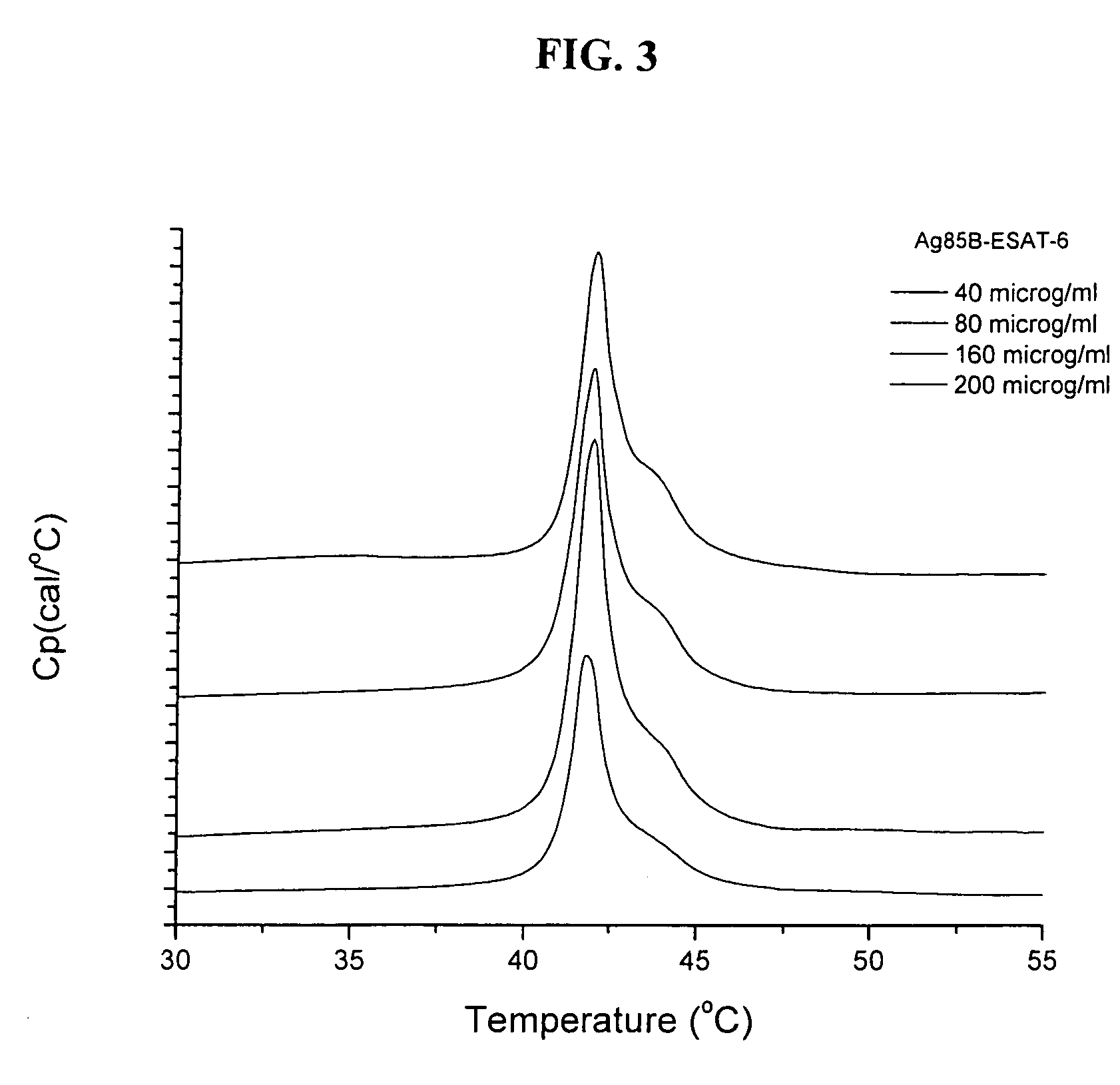Compositions and methods for stabilizing lipid based adjuvant formulations using glycolipids
a technology of glycolipids and lipids, applied in the field of liposome formulations, can solve the problems of not being immunogenic, not producing an effective immune response protective against the real infectious disease, and not always providing satisfactory resistance to human tuberculosis in every population, so as to reduce the charge repulsion of cationic vesicles, prevent dehydration of quaternary ammonium head-groups, and increase the overall hydration of liposomal bi
- Summary
- Abstract
- Description
- Claims
- Application Information
AI Technical Summary
Benefits of technology
Problems solved by technology
Method used
Image
Examples
example 1
Preparation of DDA Vesicles Containing Increasing TDB Concentrations
[0096]The TDB containing DDA vesicles were made using the thin lipid film method. Dimethyldioctadecylammonium Bromide (DDA-B, Mw=630.97) and D-(+)-Trehalose 6,6′-dibehenate (TDB, Mw=987.5) (Avanti Polar Lipids, Alabaster, Ala.) were dissolved separately in chloroform methanol (9:1) to a concentration of 10 mg / ml. Specified volumes of each individual compound were mixed in glass test tubes. The solvent was evaporated using a gentle stream of N2 and the lipid films were dried overnight under low pressure to remove trace amounts of solvent. The dried lipid films were hydrated in Tris-buffer (10 mM, pH=7.4) to the concentrations specified in Table 1, and placed on a 70° C. water bath for 20 min, the samples are vigorously shaken every 5 min.
[0097]
TABLE 1List a range of adjuvant formulation preparedin accordance with the present invention.ConcentrationDDADDATDBMole % TDB(mM)TDB (mM)(mg / ml)(mg / ml)0100.06.250.00.5100.056.2...
example 2
TDB Increase the Long-Term Stability of DDA Formulations
[0098]Formulations of DDA-B vesicles containing increasing concentrations of TDB were stored at 4° C. and the visual appearance of the different formulations was evaluated after one day and again after two months (Table 2). After 2 months storage at 4° C., 10 mM DDA formulations (Sample 02) contained 16 mole % TDB, (Sample 03) contained 12.5 mole % TDB, (Sample 04) contained 6 mole % TDB, (Sample 05) contained 2.5 mole % TDB, (Sample 06) contained 0.5 mole % TDB, and a reference sample contained only DDA. It is clear from this illustration that the suspension containing TDB are more homogeneous and without precipitates.
[0099]The evaluation clearly demonstrates that TDB stabilize the DDA vesicles. Suspensions of DDA in aqueous buffer without TDB precipitate after one day, whereas in DDA suspensions containing more than 10 mole % TDB no participate are formed. In suspensions with as low a TDB concentration as 6% only very small a...
example 3
TDB is Incorporated in the Lipid Bilayer of DDA Vesicles
[0102]Lipid bilayers formed from synthetic dialkyldimethylammonium undergoes a gel to liquid crystal main phase transition at a characteristic phase transition temperature Tm. The phase transition involves melting of the dialkyl chains in the vesicular bilayers and the organization of the chains changes from a state characterized by a high degree of conformational order to state with a higher degree of disorder. A large transition enthalpy is associated with the chain melting process. This change in enthalpy is detected as a peak in the heat capacity curve with a maximum at the transition temperature, Tm. The transition temperature as well as the shape of the heat capacity curve depends on the nature of the polar head-group, the counter ion, and the length of the dialkyl chains. Generally the Tm value decreases with decreasing chain length and increasing asymmetry of the alkyl chains. The effect of a second dialkyl surfactant o...
PUM
| Property | Measurement | Unit |
|---|---|---|
| temperature | aaaaa | aaaaa |
| pH | aaaaa | aaaaa |
| pH | aaaaa | aaaaa |
Abstract
Description
Claims
Application Information
 Login to View More
Login to View More - R&D
- Intellectual Property
- Life Sciences
- Materials
- Tech Scout
- Unparalleled Data Quality
- Higher Quality Content
- 60% Fewer Hallucinations
Browse by: Latest US Patents, China's latest patents, Technical Efficacy Thesaurus, Application Domain, Technology Topic, Popular Technical Reports.
© 2025 PatSnap. All rights reserved.Legal|Privacy policy|Modern Slavery Act Transparency Statement|Sitemap|About US| Contact US: help@patsnap.com



